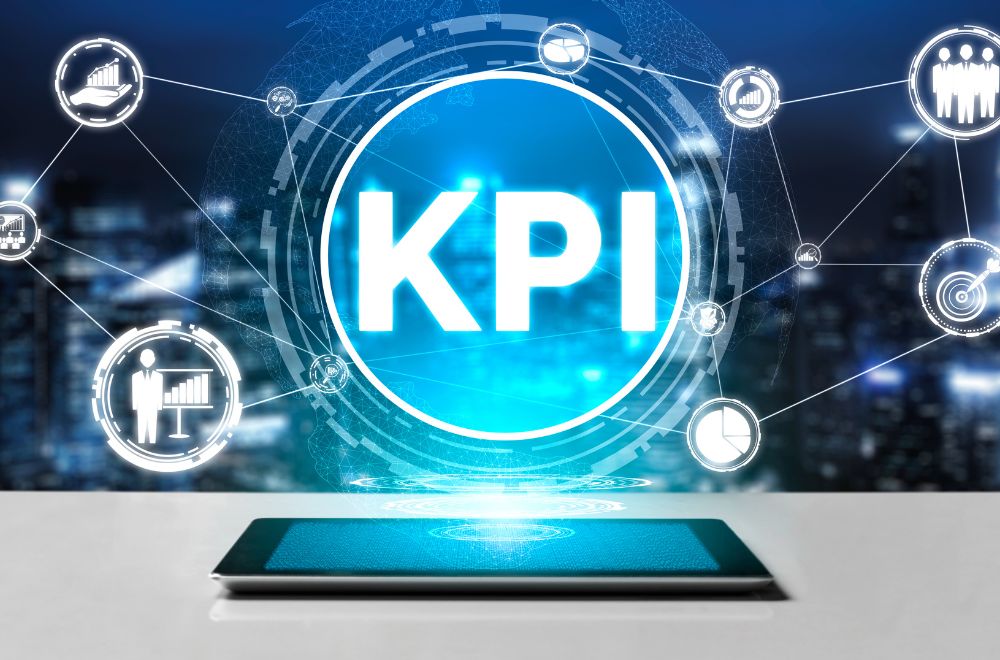When crafting a business strategy in the UAE, it’s important to have a clear vision that aligns with the nation’s evolving market dynamics. A well-defined vision sets the course for your future goals and keeps your business competitive in a diverse and rapidly changing environment. With the UAE’s shift towards a knowledge-based economy and a strong focus on sustainability, aligning your strategy with national priorities like the UAE Vision 2021 can make a significant difference.
By conducting thorough market dynamics and competitor analysis, you can spot opportunities and threats, while a unique value proposition helps differentiate your offerings. Resource allocation, strategic budgeting, and investment in technology are key to sustaining growth. Finally, measuring success through KPIs and adapting strategies ensures resilience in the face of market changes. You can thrive in the UAE’s dynamic landscape by focusing on these elements.
Establishing a Clear Vision
Creating a business strategy for long-term success in the UAE begins with establishing a clear vision. This vision serves as the foundation for all strategic decisions, guiding the company towards its future goals. A well-defined vision not only outlines the purpose and direction of the business but also communicates the value it intends to deliver to its customers.
In the UAE, where the business environment is dynamic and rapidly evolving, having a clear vision is vital for navigating market complexities and seizing opportunities.
Defining Long-Term Goals
Defining long-term goals is a critical step in establishing a clear vision. These goals should be ambitious yet achievable, providing a roadmap for your company’s growth and development over time. In the UAE, the government’s initiatives, such as the National Agenda for Entrepreneurship, highlight the importance of setting long-term objectives that align with the country’s vision of becoming an entrepreneurial hub by 2031.
Consider how your goals contribute to this broader national agenda while also addressing your target market’s specific needs and desires. Understanding customer demands, focusing on a customer-centric approach and identifying gaps in the market are essential for setting goals that are both relevant and impactful.
Aligning Vision with UAE Market Dynamics
Aligning your company’s vision with the unique market dynamics of the UAE is essential for long-term success. The UAE offers a robust business environment characterised by political stability, a transparent legal system, and excellent infrastructure. Additionally, the government’s efforts to diversify the economy away from oil dependency through initiatives like the UAE Vision 2021 and the Dubai Plan 2021 create a fertile ground for innovation and sustainability-driven businesses.
You should align your vision with these national priorities, focusing on eco-conscious practices and the well-being of consumers, which are increasingly important in the region. The UAE’s strategic location, providing access to a vast consumer base, further enhances the potential for your business to expand and thrive.
Communicating Vision Across the Organisation
Effectively communicating the vision across the organisation is vital to ensure that all team members are aligned and working towards a common goal. A collaborative approach to developing the company vision and involving employees in the process can foster a sense of ownership and commitment. This alignment is essential for maintaining focus and driving business growth.
Assigning roles such as Vision Leader or Ambassador can help reinforce the vision and ensure that it is consistently integrated into daily operations. In the UAE, where understanding and respecting local culture and business etiquette is important, clear communication of the vision can also help build trust and credibility with stakeholders. Engaging with local consultants can further aid in navigating the regulatory landscape, ensuring that your company’s vision is communicated effectively and implemented in compliance with local requirements.
Conducting Market and Competitor Analysis
Analysing Market Trends in the UAE
The UAE stands out as a dynamic economic centre in the Middle East, marked by its swift diversification and strategic role as a bridge between Eastern and Western markets. The economy is evolving towards a knowledge-based framework, with substantial investments in areas such as digital technology, logistics, and tourism. This transition aims to lessen dependence on oil revenues, which faced significant challenges during the pandemic.
Nevertheless, the economy has demonstrated resilience, with GDP growth rebounding from a 6.1% decline in 2020 to an anticipated 4.2% growth in 2023.
A strong commitment to sustainability and clean energy is influencing market trends. The designation of 2023 as the Year of Sustainability and the upcoming COP28 UN climate conference highlights the nation’s dedication to green technologies. These efforts are generating new business prospects, especially in clean energy sectors. Furthermore, the UAE’s status as a prominent trade and tourism hub continues to grow, bolstered by world-class trade events that draw global participation.
Identifying Key Competitors
The competitive environment in the UAE is primarily shaped by a few dominant companies, which can create hurdles for newcomers. These established firms wield considerable market power, making it necessary to understand the competitive landscape deeply. Each Emirate has its own regulatory framework, necessitating that businesses remain adaptable and well-versed in local laws to navigate the market effectively.
The UAE’s welcoming stance towards international business and its strategic location enhances its appeal to global enterprises. This has resulted in diverse competitors across multiple sectors, including manufacturing, construction, financial services, and tourism. Familiarity with the strengths and strategies of these key players is essential for those aiming to establish a presence in the UAE market.
Assessing Opportunities and Threats
The UAE presents numerous opportunities for businesses fuelled by its economic diversification and strategic initiatives. Growth in non-oil sectors such as construction, manufacturing, and tourism offers significant potential for expansion. The steady increase in international trade, with imports on the rise, further underscores the prospects available for those looking to enter or grow within this market.
To thrive in the UAE, conducting a thorough analysis of both opportunities and threats is essential. This includes staying updated on economic trends, comprehending the competitive landscape, and being flexible in response to each Emirate’s unique regulatory conditions. By doing so, businesses can position themselves for sustained success in this dynamic and rapidly changing market.
Building a Unique Value Proposition
Creating a compelling, Unique Value Proposition (UVP) is essential for businesses aiming for long-term success in the UAE. A UVP is a clear statement that communicates your product’s or service’s benefits, how it addresses customer needs, and what sets it apart from competitors. It’s a promise of value that should resonate with potential customers, providing them with a reason to choose your offering over others.
Differentiating Your Offerings
In a competitive market like the UAE, standing out is of utmost importance. A well-crafted UVP should highlight what distinguishes your product or service and why it’s the best choice for your target audience. This involves understanding your customers’ specific challenges and how your offerings provide solutions. It’s important to articulate these benefits clearly and concisely, ensuring that your UVP is easy to understand and memorable.
To differentiate effectively, you must conduct thorough customer research. This helps align the UVP with the conversations already happening in potential customers’ minds. By addressing their specific needs and preferences, you can create a UVP that attracts attention and builds trust and loyalty.
Enhancing Customer Experience
In the UAE, customers are increasingly seeking personalised and seamless experiences. They expect more value for their money and prefer brands that offer omnichannel processes. Enhancing customer experience is a critical component of a successful business strategy.
To meet these expectations, focus on delivering exceptional service at every touchpoint. This includes providing personalised interactions, ensuring ease of access across various channels, and maintaining high standards of quality. You can foster long-term relationships and encourage repeat business by prioritising customer satisfaction.
Leveraging Local Cultural Insights
Understanding and respecting local cultural nuances is vital for businesses operating in the UAE. The country is a melting pot of cultures, with a significant expatriate population and deeply rooted Islamic traditions. This diverse cultural landscape presents both opportunities and challenges.
To leverage cultural insights effectively, be mindful of local customs and traditions. This includes respecting religious practices, such as dressing modestly and observing local holidays. Building personal relationships is also key, as business interactions in the UAE often rely on trust and mutual respect. Face-to-face meetings and networking events are valuable opportunities to establish and strengthen these connections.
Moreover, incorporating Corporate Social Responsibility (CSR) into your business strategy can enhance your brand’s reputation and appeal. The UAE strongly emphasises CSR, and businesses that demonstrate a commitment to social and environmental causes are likely to gain customer and community favour.
By integrating these cultural insights into your UVP and overall business strategy, you can create a more authentic and relatable brand that resonates with the UAE’s diverse population.
Allocating Resources and Setting Budgets
Identifying Core Resources Needed
In the UAE’s dynamic business landscape, pinpointing essential resources is crucial in developing a successful long-term strategy. These resources include financial capital, skilled personnel, and technological tools, all of which should align with your company’s strategic goals.
A comprehensive understanding of these resources enables effective allocation, ensuring that each department or initiative receives the necessary support to meet its objectives. This alignment is vital for maintaining operational efficiency and fostering growth.
Strategic Budget Planning
Effective budget planning is essential to forecasting income and expenditures, establishing financial goals, and consistently monitoring performance. In the UAE, where economic conditions can shift swiftly, a well-organised budget guides financial stability and success. It allows for the alignment of expenditures with strategic goals, ensuring that resources are directed towards growth initiatives and everyday operations.
By creating a detailed budget, you can prioritise spending, identify potential cost-saving opportunities, and make informed decisions regarding future investments. This process also includes setting measurable financial objectives and regularly assessing progress to ensure alignment with long-term aspirations.
Investment in Technology and Innovation
Investing in technology and innovation is vital to a successful business strategy in the UAE. The nation has made significant progress in promoting a technology-driven economy, with government initiatives encouraging digital transformation and innovation. By capitalising on these advancements, your company can gain a competitive advantage, enhance efficiency, and improve customer experiences.
Embracing cutting-edge technologies such as AI, robotics, and fintech can position your business at the forefront of industry trends. The UAE’s commitment to sustainable growth and economic diversification further emphasises the necessity of incorporating technology and innovation into your business strategies. This approach drives long-term success and ensures adaptability in a constantly evolving market environment.
Measuring Success and Adapting Strategies
Establishing Key Performance Indicators (KPIs)
Establishing KPIs is vital for measuring success and guiding strategic decisions in the UAE’s dynamic business environment. These quantifiable metrics help assess performance against set objectives. Common KPIs in the region include revenue growth, gross profit margin, customer acquisition cost, customer retention rate, employee turnover rate, net promoter score, and return on investment. These indicators provide a clear picture of strengths and areas needing improvement.
By setting KPIs, businesses can track progress over time, make informed decisions, and identify areas that require attention. This data-driven approach enables the alignment of strategies with goals, ensuring competitiveness in the ever-evolving UAE market. Regularly reviewing and updating KPIs is necessary, as it allows adaptation to changing market conditions and maintenance of strategic focus.
Implementing Feedback Loops
Feedback loops are essential for driving continuous improvement and innovation. In the UAE, where market conditions are constantly shifting, these loops help maintain agility and responsiveness. They can be categorised into positive and negative feedback loops. Positive feedback loops highlight strengths and opportunities for growth, while negative feedback loops identify areas needing improvement, preventing potential issues from escalating.
Objectives, such as enhancing customer satisfaction or boosting employee engagement, should first be defined to implement effective feedback loops. Gathering data from customers, employees, and stakeholders through surveys and focus groups is essential. Analysing this data with advanced tools can reveal trends and areas for improvement, allowing for the development of targeted strategies.
Communicating these strategies to stakeholders and tracking their outcomes against initial goals is required for evaluating effectiveness. By fostering a culture of open communication and transparency, businesses can encourage employees to share insights, further enhancing the feedback loop process. This approach optimises operations and strengthens customer and employee satisfaction, ultimately contributing to a more robust bottom line.
Adapting to Changing Market Conditions
The UAE’s market is renowned for its rapid evolution, making adaptability a key factor for long-term success. To stay ahead, businesses must remain vigilant to market shifts, consumer behaviours, and economic indicators. Conducting thorough market research and utilising data analytics tools can provide valuable insights into customer preferences and emerging trends.
A flexible business model is essential, allowing for quick pivots in response to market changes. This adaptability is particularly important in 2024, as strategies must align with evolving market trends. Focusing on customer experience is also important, as high expectations in the UAE demand exceptional service and innovation.
Staying attuned to consumer trends, such as the rise of online shopping and the demand for eco-friendly products, can provide a competitive edge. Building strong relationships through industry events, trade shows, and local business associations is equally important. Engaging with government initiatives and respecting local culture further enhances the ability to adapt and thrive in the UAE market.
Charting a Course for Sustainable Growth
Creating a robust business strategy for long-term success in the UAE requires a comprehensive understanding of the unique market dynamics and cultural landscape. Businesses can navigate complexities effectively by establishing a clear vision, defining long-term goals, and aligning strategies with national priorities.
Developing a unique value proposition and enhancing customer experience is key to distinguishing your brand in a competitive market. Additionally, strategic resource allocation, investment in technology and continuous adaptation to market changes remain key components for fostering sustainable growth.
Embracing innovation and upholding cultural respect will strengthen your business position and build lasting relationships with stakeholders.
As you chart your course in the UAE, remain proactive and agile—positioning your business to seize opportunities, address challenges, and ensure enduring success in this dynamic landscape.




